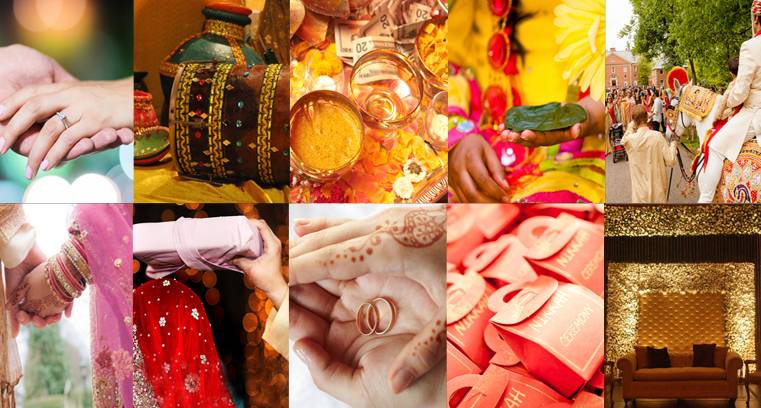The wedding season is on and every weekend seems to be pre-scheduled. But it seens as if wedding traditions are fading away. We are quite unaware of different wedding traditions across the provinces in Pakistan. And so, just to add a little bit of color, nostalgia and history in this ongoing wedding marathon, here are a few wedding rituals from across Pakistan that you might not know of.
Rice Cleaning (BALOCHISTAN)
A kind of bridal shower. The relatives and friends of bride get together at bride’s home to clean rice for the wedding ceremony. It’s the best time to enjoy one another’s presence and to discuss the plan for the next day. That rice then get cooked for the wedding feast. Utterly brilliant!
The Making of Katwa (HARIPUR)
The people of Haripur traditionally don’t have to decide the menu on Mehndi, since 'Ketwey' the dish itself, is synonymous with Mehndi. Yes, that’s how much it matters. It takes hours to cook in small clay pots and the sweet thing is that all the uncles and friends of the groom prepare the dish themselves with help of professional cooks. Just like rice cleansing in Balochistan, they start in the morning and peel onion, garlic and other accessories. So girls don’t worry, boys are cooking as well.
Waag Parhai (PUNJAB)
Almost a dying tradition but one of the sweetest sweetest tradition to show brother-sister love. Sister holds the rein of the horse which her brother is riding. The negotiation goes for some time as the sister’s demand is always high. The whole family gets involved until they reach a settlement. As grooms are not riding horses these days so sisters mostly block the groom’s way alternatively. But in general lesser people are aware of this custom now. We would suggest all sisters to go for it!

Walwar (KP)
It’s almost opposite of dowry and sounds more convincing. Walwar (money), which forms part of the negotiations, is also determined at the time of engagement. In accordance with the Jirga's decision the suitor's parents agree to pay in cash the stipulated amount to the girl's parents on the day of marriage. A part of the payment, is made on the spot. The rest of the money is paid on the marriage day. The dowry is usually meagre. The idea underlying is to provide some financial relief to the girl's parents while purchasing gold or silver ornaments, clothes, house-hold utensils etc for their daughters.
Nabad and Manamal (KASHMIR)
On reaching the groom's house, they are given nabad to eat and the mananmal; the threads tied on their heads are exchanged. Two pigeons are also freed to celebrate the occasion. Then they are led to the kitchen where they have food fed by the aunt. The next ritual is Satraat, as per which the bride along with groom and some kids visits her parents house. Here, the couple is presented with gifts. Phirlath is the ritual wherein the couple visits the bride's parents for the second time and once again they are given presents.

Daave Washiyash (GILGIT BALTISTAN)
The family arranging marriage has to invite all the close relatives both maternal and paternal including married ladies of the kinship or tribe (Shilajiyoo) along with their children and husbands. Invitation goes to all no matter how distant they are, at least some 4 days earlier to the wedding day (Garey Gunch).The household arranging wedding is responsible for all the arrangements i.e. meals, accommodation of all the invited relatives till the end of the wedding ceremonies.
Point to be noted is that meat (Chap) must be the main ingredient of both lunch and dinner. For breakfast and other lighter meals Qista, Khamali (breads made of wheat flour), and Maltas (butter) with Tan Boom Chai (strong tea in terms of milk and tea leaves) is absolutely mandatory. No compromise.

Qilla (BALOCHISTAN)
Qilla is the first two days of the wedding. In Qilla the bride is asked to sit in a room for two days. In these two days she is thoroughly taken care of. Her nutrition and her looks are pampered. In Qilla the girl spends two days in peace and in the evening the groom’s family goes to her house and gives her mehndi. When her Qilla is over she is ready to go on with the Mehndi ceremony.






